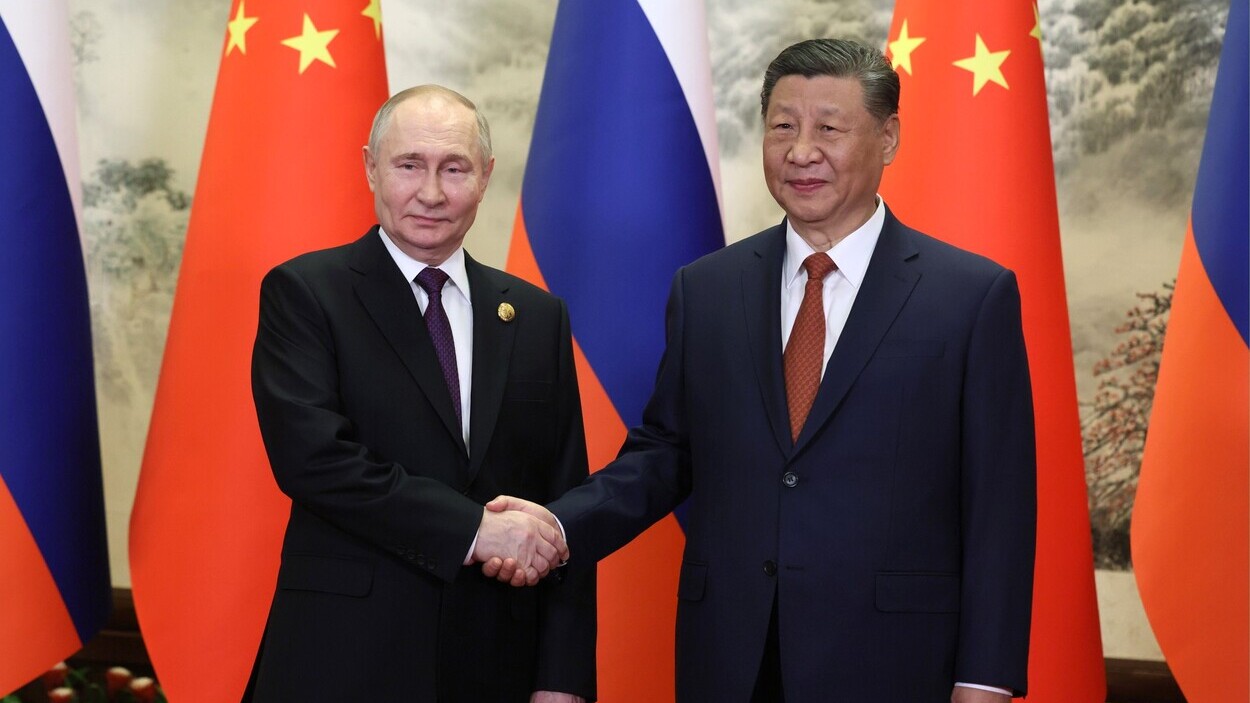Science
Dark Matter Within Reach: The Hunt for the Invisible Particle
26 January 2026

Experts are increasingly vocal about the virtually vassal-like relationship between Russia and China. The Middle Kingdom is taking over the Russian economy, making it dependent at a surprisingly rapid pace. This deep shift fundamentally proves the concept of China's dominance over Russia.
“The Russian market will never be the same again. Europeans and Americans will no longer be able to regain any Russian segment of goods, save for fashion and a few niche markets,” a former high-ranking Russian market regulation official told The Moscow Times, an opposition newspaper published in the West.
In place of many Western countries that supplied Russia with goods and services before February 2022, thereby guaranteeing Moscow a high degree of security, one giant supplier has stepped in: China. Consequently, everything in key sectors of the economy now hangs on the goodwill of Beijing.
This deep dependence has led leading global experts on Sino-Russian relations to speak openly about Moscow falling into a vassal dependency on its great Asian economic protector, underscoring China’s dominance over Russia.
“Russia is now becoming a vassal of China,” wrote Alexander Gabuev, director of the Carnegie Russia Eurasia Center, in his article “China’s New Vassal,” published in the prestigious magazine Foreign Affairs. “In a few years, Beijing will be able to dictate the terms of economic, technological, and regional cooperation with Moscow. The Kremlin is not blind, but it does not have much choice as long as Putin needs Chinese support in the fight in Ukraine, which has become his obsession.”
Following Russia’s full-scale attack on Ukraine, Russia and China announced a “partnership without limits.” Moscow presented this to the world as the foundation for its future success in the war with Ukraine—behold, without the West, Russia will still be able to sell its hydrocarbons and acquire necessary goods.
Indeed, China’s exports to Russia have nearly doubled since 2021, reaching $115 billion last year. The Middle Kingdom simultaneously became the largest buyer of Russian oil and gas.
One decision by Xi Jinping, and Russia plunges into giant economic problems, a fact the Kremlin is perfectly aware of. Without Chinese chips and electronics, the Russian Geran drones, which plague Ukraine, would not be built on such a scale.
According to estimates by the Kyiv School of Economics, as early as 2023, 76% of high-tech components used in the Russian arms industry came from China. The percentage may have only increased since then.
The dependence on China naturally extends to many other sectors, not just the Russian defence industry. The automotive sector is in a particularly bad state, with Chinese brands practically dominating it. This summer, Russia’s three largest automotive companies (Kamaz, Gaz, and AvtoVAZ) decided to shorten the work week by one day. The reason is the competition from Chinese brands, which the Russians simply cannot handle.
The effect is a complete transformation of the Russian automotive market. While only 2% of cars sold in Russia in 2019 came from the Middle Kingdom, that percentage reached almost 60% last year (65% in the heavy truck segment). However, as the Centre for Eastern Studies notes in its analysis, this alone would not be so alarming from the Russian perspective.
Before 2022, most cars sold in Russia were also foreign-made. However, these were Western brands that manufactured a large portion of those cars in Russia, providing jobs for Russian workers. This resulted from Moscow’s pressure, which, by juggling tariffs and taxes, was able to “encourage” Western manufacturers to assemble cars on Russian territory.
Meanwhile, the situation is entirely different with the Chinese: the Kremlin is powerless to compel Beijing to build factories in Russia, despite touting the “partnership without limits.” Consequently, the vast majority of Chinese cars sold along the Volga are produced along the Yangtze. The Russian automotive industry is dying, and the Kremlin can do nothing about it, confirming the reality of China’s dominance over Russia.
The sector that until now was a golden goose for the Kremlin is also collapsing. Last year, Gazprom reported a loss, the first such situation in the present century. The company that filled Putin’s treasury before 2022 generated a $7 billion loss in 2024.
The cessation of supplies to the West meant that essentially the only direction for Russian natural gas sales is China. However, as industry media established last year, China is very assertive when it comes to the purchase price of this commodity and sets conditions for Russia that would be completely unacceptable to the Kremlin under other circumstances (had Russia not self-isolated from the West).
The long-announced major gas pipeline set to connect Russia with China—Power of Siberia 2—will be built only if Moscow agrees to sell gas to the Middle Kingdom at… domestic Russian prices (around $60 per 1,000 m³). If Putin accepted such terms, he would make practically no profit.
Nevertheless, in early September, Gazprom CEO Alexey Miller announced a breakthrough in talks with China, declaring that Power of Siberia 2 would be built regardless. Despite the official enthusiasm of the Gazprom chief, the whole affair does not look rosy for Russia.
“It would be easy to assess this announcement as a huge step forward in relations between Moscow and Beijing, but there is no shortage of reasons to caution against such an interpretation,” assessed the American think tank Atlantic Council in its analysis, emphasising that Moscow’s enthusiasm for the project is not reciprocated by Beijing.
“First and foremost, the Chinese have yet to confirm the news, suggesting that the construction of the pipeline has not, in fact, been agreed upon (…). Miller’s announcement should be viewed as an expression of growing desperation on Gazprom’s part, rather than confirmation that the pipeline will actually be built,” the American experts write.
Everything suggests that the Chinese are waiting until Moscow “softens” to the point of accepting pricing conditions that Putin would have dismissed with empty laughter in any other circumstance.
While the Kremlin officially boasts about excellent relations with Beijing, there are clear fears within the Russian state apparatus regarding the Chinese colossus. A secret, 8-page FSB document that reached The New York Times journalists a few months ago speaks volumes on this subject.
According to the newspaper’s findings, a special cell within Russian counterintelligence dealing with China directly calls China an “enemy.” Its officers warn other FSB functionaries in their reports against the penetration of Russia by Chinese spies, who primarily seek to seize the biggest secrets of the Russian arms industry. But the fears of the Chinese noose tightening around Russia are far more numerous there.
According to the document obtained by the NYT, the Russians are concerned that Beijing is counting on taking over their Arctic infrastructure, which is falling into disrepair due to Western sanctions.
Particularly significantly, the aforementioned FSB cell warns that the groundwork has reportedly begun at Chinese universities to explain to their society why China should take over Russian lands in the Far East, which belonged to the Middle Kingdom in the 19th century.
These concerns also have a basis in official Beijing actions. As recently as 2023, Russians were alarmed by the news that on Chinese government maps, which require approval from authorities in Beijing, some city and region names in the Russian Far East appeared in their old Chinese forms.
“Russia has long feared China’s violation of their shared, 2,615-mile border. Chinese nationalists have raised the issue of 19th-century treaties for years, under which Russia annexed vast territories, including today’s Vladivostok,” the New York newspaper highlighted in its piece revealing the secret FSB document.
Other governments, including the Polish one, are noticing this issue. “Don’t you have enough land? Eleven time zones and still not enough? Focus on better governing what is within your borders according to international law. Instead of fantasising about reconquering Warsaw, worry about whether you can keep Hǎishēnwǎi,” said Polish Foreign Minister Radosław Sikorski in the Sejm this April.
Read the original article in Polish: Putin traci kontrolę. Rosja staje się wasalem Chin


Truth & Goodness
25 January 2026

Zmień tryb na ciemny